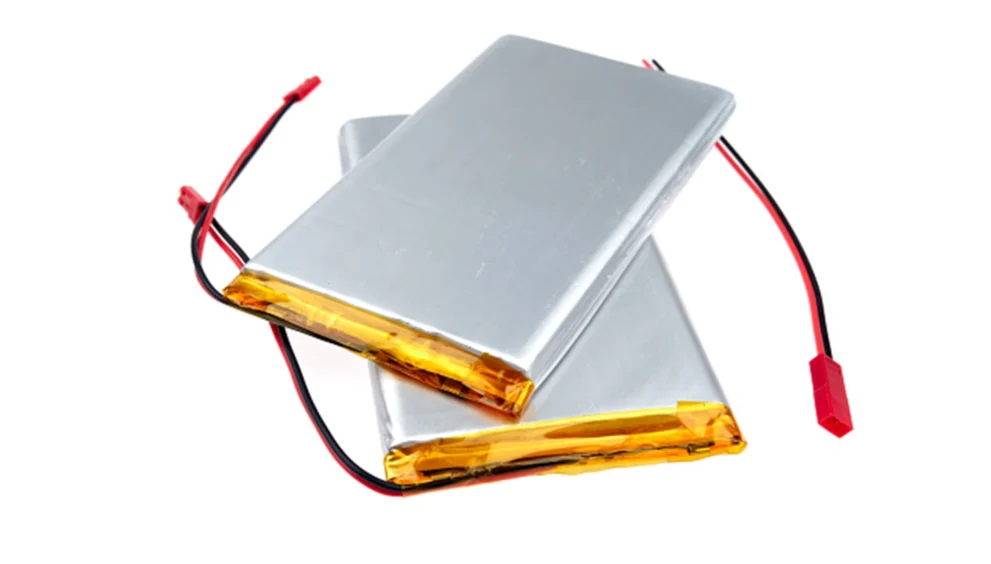All You Need to Know About Lithium Polymer (LiPo) Batteries
LiPo (short for Lithium Polymer) batteries are rechargeable batteries that use lithium-ion technology. They are commonly used in a variety of devices such as smartphones, tablets, laptops, remote control vehicles, and drones.
LiPo batteries are popular because they have a high energy density, meaning they can store a lot of energy in a small package. They are also lightweight, flexible, and can be made in a wide range of sizes and shapes to fit different devices.
One of the main advantages of LiPo batteries is their high discharge rates, which means they can deliver high power for a short period. This makes them well-suited for use in devices that require bursts of power, such as remote-control vehicles.
However, LiPo batteries require careful handling and charging to avoid safety issues such as overcharging, short-circuiting, or puncturing, which can result in fire or explosion. It’s important to follow the manufacturer’s guidelines for charging and storage to ensure safe and effective use of lipo batteries.
Are LiPo Battery Same as R C Battery?
Lithium polymer (LiPo) batteries are one type of battery that can be used in radio-controlled (RC) vehicles and other RC devices, but not all RC batteries are LiPo batteries.
Several types of batteries are commonly used in RC applications, including nickel-metal hydride (NiMH), lithium-ion (Li-ion), and lead-acid batteries, in addition to LiPo batteries.
LiPo batteries have become popular for RC applications due to their high energy density, low weight, and high discharge rates, which are important for high-performance RC vehicles. However, the choice of battery depends on the specific application, as each type of battery has its advantages and disadvantages.
So, while LiPo batteries are commonly used as RC batteries, not all are the same.
Uses of LiPo Batteries
Lithium polymer (LiPo) batteries are commonly used in a wide range of consumer electronics and industrial applications, due to their high energy density, lightweight, and low self-discharge rate. Here are some common uses of LiPo batteries:
- Portable electronics : LiPo batteries are commonly used in portable devices such as smartphones, tablets, laptops, and digital cameras.
- RC hobbyists : LiPo batteries are popular in remote control vehicles like drones, airplanes, and cars, due to their high energy density and lightweight.
- Medical devices : LiPo batteries are used in medical devices such as pacemakers, hearing aids, and portable oxygen concentrators.
- Power banks : LiPo batteries are used in power banks, which are portable charging devices that can be used to recharge smartphones and other electronic devices.
- Electric vehicles : LiPo batteries are used in electric vehicles, such as electric bikes, scooters, and cars, due to their high energy density and lightweight.
- Renewable energy storage : LiPo batteries can be used to store energy from renewable energy sources like solar panels and wind turbines.
Overall, LiPo batteries are used in a wide variety of applications due to their high energy density, lightweight, and low self-discharge rate, making them an attractive option for powering portable and mobile devices.
Advantages of LiPo Batteries
Lithium polymer (LiPo) batteries have several advantages over other types of batteries, such as lead-acid and nickel-cadmium batteries. Here are some of the advantages of LiPo batteries:
- High energy density : These batteries have a higher energy density compared to other battery types. This means that they can store more energy per unit of volume and weight, making them a popular choice for portable and mobile devices.
- Lightweight : These batteries are relatively lightweight, making them a great choice for applications where weight is an important consideration, such as in drones, electric vehicles, and portable electronics.
- Low self-discharge rate : These have a low self-discharge rate, meaning that they can hold their charge for longer periods when not in use, reducing the need for frequent recharging.
- High discharge rates : LiPo batteries can discharge at high rates, which is important for applications that require high power output, such as electric vehicles and RC hobbyists.
- Flexible and customizable : LiPo batteries are flexible and can be made in a variety of shapes and sizes, making them easy to fit into different types of devices. Additionally, LiPo batteries can be customized to fit specific voltage and current requirements, which makes them ideal for a wide range of applications.
Overall, the high energy density, lightweight, low self-discharge rate, high discharge rates, and flexibility of LiPo batteries make them a popular choice for a variety of applications, particularly in portable and mobile devices.
Drawbacks of LiPo Batteries
While lithium polymer (LiPo) batteries have many advantages, they also have some potential drawbacks. Here are some of the disadvantages of LiPo batteries:
- Safety concerns : They can be volatile and potentially dangerous if not handled properly. Overcharging, puncturing, or exposing them to high temperatures can cause them to catch fire or explode.
- Shorter lifespan : They have a limited lifespan and can only be recharged a certain number of times before they begin to degrade and lose their capacity.
- Need for special care : These require special care and handling to ensure their safety and longevity. They should be stored and charged in a fireproof container, and the charging process should be closely monitored to prevent overcharging or undercharging.
- Higher cost : They are typically more expensive than other types of batteries, such as nickel-cadmium or lead-acid batteries.
- Temperature sensitivity : These are sensitive to temperature changes and may not perform well in extremely hot or cold environments.
Overall, while LiPo batteries offer many advantages over other battery types, they require careful handling and monitoring to ensure their safety and longevity. Additionally, their shorter lifespan and higher cost may make them less suitable for some applications.
Food For Thought
R C Battery is the one-stop solution for all your queries and searches regarding batteries. We deal in all kinds of batteries and have an excellent staff to cater to your inquisitions and suggest the best solutions to all your requirements. We aim at fostering the growth of knowledge.






